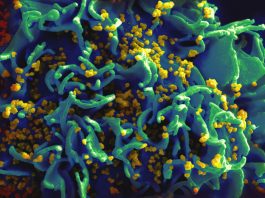Antibiotic resistance has emerged as a critical global health concern, rendering once-powerful medications ineffective against bacterial infections.
This growing threat is fuelled by the rapid evolution of resistant strains, particularly in individuals with underlying health conditions such as diabetes.
New research sheds light on how diabetes accelerates the development of antibiotic-resistant bacteria, posing a serious challenge to public health.
How diabetes fuels antibiotic resistance
Diabetes is a chronic condition that disrupts blood sugar regulation, often leading to elevated glucose levels in the bloodstream.
This high-sugar environment creates the perfect breeding ground for bacteria, particularly Staphylococcus aureus (Staph), one of the most notorious antibiotic-resistant pathogens.
Researchers at the University of North Carolina (UNC) School of Medicine have discovered that individuals with diabetes are more susceptible to developing antibiotic-resistant strains of Staph.
Their study highlights how the diabetic microbial environment fosters genetic mutations that enhance bacterial resistance to antibiotics.
The science behind resistant bacteria in diabetes
When bacteria multiply, random genetic mutations naturally occur. Some of these mutations provide resistance to antibiotics, allowing certain bacterial strains to survive and proliferate even in the presence of medication.
In diabetes, the abundance of glucose accelerates bacterial reproduction, increasing the likelihood of these resistant mutations appearing. Additionally, diabetes weakens the immune system, making it harder for the body to combat infections effectively.
The research team conducted experiments using diabetic and non-diabetic models infected with Staphylococcus aureus and treated them with rifampicin, an antibiotic known for its high resistance rate.
The results were startling: bacterial resistance developed significantly faster in diabetic models, with the resistant strain taking over the infection within just four days. In contrast, no resistance was observed in non-diabetic models.
The role of blood sugar control in preventing resistance
One promising finding from this study is the role of blood sugar control in mitigating antibiotic resistance.
Researchers observed that administering insulin to diabetic models helped regulate glucose levels, depriving bacteria of the excess fuel needed for rapid proliferation. This intervention significantly reduced the emergence of antibiotic-resistant strains.
This insight suggests that effective diabetes management may play a crucial role in slowing the spread of antibiotic resistance.
Beyond controlling infections in diabetic individuals, reducing resistant bacteria in one population can help prevent its transmission to others through everyday interactions, such as touching surfaces or sharing food.
Implications for public health
The implications of these findings extend beyond diabetes. The research team plans to explore antibiotic resistance in other vulnerable populations, including cancer patients undergoing chemotherapy and organ transplant recipients, both of whom have compromised immune systems.
Understanding the interplay between host health conditions and bacterial evolution can guide new strategies for combating antibiotic resistance.
This may include personalised antibiotic treatments, targeted infection prevention measures, and more stringent blood sugar management protocols for patients at high risk.
Strategies to combat antibiotic resistance
While medical research continues to uncover new solutions, individuals and healthcare providers can take proactive steps to reduce the risk of antibiotic resistance:
- Proper antibiotic use: Avoid unnecessary antibiotic prescriptions and always complete prescribed courses.
- Blood sugar management: Diabetics should work closely with their healthcare providers to maintain optimal glucose levels.
- Infection prevention: Regular hand washing, proper wound care, and vaccination can help reduce bacterial infections.
- Research and innovation: Continued scientific investigation into the mechanisms of resistance can lead to the development of novel treatments.
Antibiotic resistance is not solely linked to medication overuse – it is also influenced by patient health conditions.
The link between diabetes and antibiotic resistance underscores the importance of managing chronic illnesses to prevent bacterial evolution.
By taking a comprehensive approach that combines medical research, public awareness, and personal responsibility, we can slow the spread of antibiotic-resistant infections and safeguard the effectiveness of life-saving treatments.









